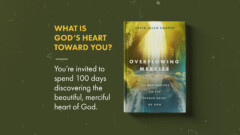William Shakespeare wrote some pretty mean plays and poetry in his day. Along the way he inadvertently helped form the English language, coining hundreds of words and expressions that have entered into common parlance. Second only to Shakespeare in this regard is the Bible, and especially the King James Version. My love of language, my love of words, and my love of the Bible beautifully intersect in these expressions, idioms like “By the skin of my teeth.”
The Expression
We use the expression “by the skin of my teeth” as a synonym for “barely” or “narrowly.” It is most commonly used to describe a closely-fought but narrow victory or a close but ultimately harmless encounter with danger. An article in Slate suggests that if Donald Trump wins the presidency, he will do so only by the skin of his teeth, which, they say, “is pretty much the only conceivable way he could best Clinton.” An article in the sports pages of the Toronto Star says that NASCAR driver James Hinchcliffe “won last Saturday night’s race at Texas Motor Speedway by the skin of his teeth.”
The Origin
The phrase is drawn from the King James rendering of Job 19:20: “My bone cleaveth to my skin and to my flesh, and I am escaped with the skin of my teeth.” Almost all modern translations maintain the idiom, though “with” has been changed to “by”: “My bones stick to my skin and to my flesh, and I have escaped by the skin of my teeth” (ESV). This expression is a case of an ancient Hebrew idiom that has been transported into English and become commonly known and widely used. Yet no one knows exactly what the idiom means in its source language. Old Testament scholar John Hartley says, “The explanations for the metaphor are multiple and unconvincing. Its meaning eludes us.” The Oxford Dictionary blog provides the most common and compelling explanation when it points out that it probably “refers to the thin porcelain exterior of the tooth (rather than the gums). In other words, Job escaped with his teeth, but just barely. Job is comparing the narrow margin of his escape with the shallow ‘skin’ or porcelain of a tooth: the equivalent, in fact, of a ‘hair’s breadth’.”
The Application
The twentieth chapter of Job finds him replying to his “Job’s friends,” (another common expression, as it happens). His friends have each accused him of sinning, suggesting that his past sins are the cause of his current suffering. But Job knows better. While he does not declare his utter innocence before God, he also knows that his suffering is not God’s punishment for past misdeeds. He maintains his innocence even though his suffering has been deep and dark—so terrible that he has escaped death only by the skin of his teeth. Yet his faith is intact. Just moments later he says,
For I know that my Redeemer lives,
(Job 19:25-27)
and at the last he will stand upon the earth.
And after my skin has been thus destroyed,
yet in my flesh I shall see God,
whom I shall see for myself,
and my eyes shall behold, and not another.
My heart faints within me!
For Job, circumstances would not define him. They would not be the cause of ultimate confidence or despair. Rather, he relied on his knowledge of the character of God and on his existing relationship with God. He knew his God, therefore he knew that God was working good even through the most troubling of circumstances. And this is undoubtedly the foremost application for most of us. Even if we suffer so deeply that we escape with our lives by little more than the skin on our teeth, God remains God and he remains good.
Job’s words served as the basis for Samuel Medley’s great hymn, “I Know That My Redeemer Lives.” My favorite rendition, which we sing often at Grace Fellowship Church, is this one from Redeemer Church of Knoxville.
Job’s words are also prominently and beautifully featured in Handel’s Messiah, as demonstrated here by Sylvia McNair.










